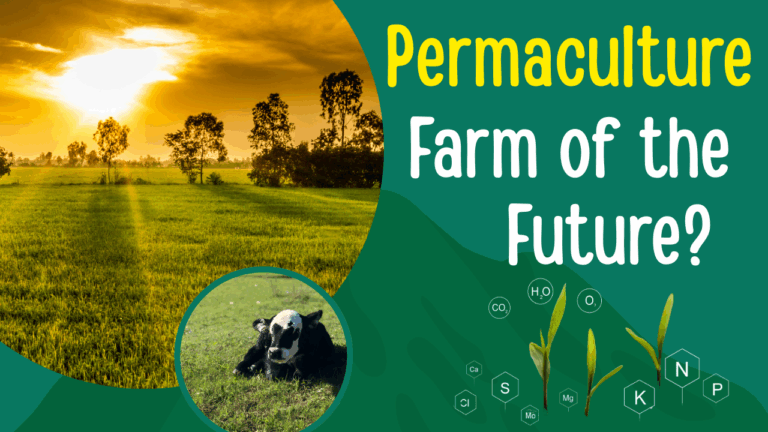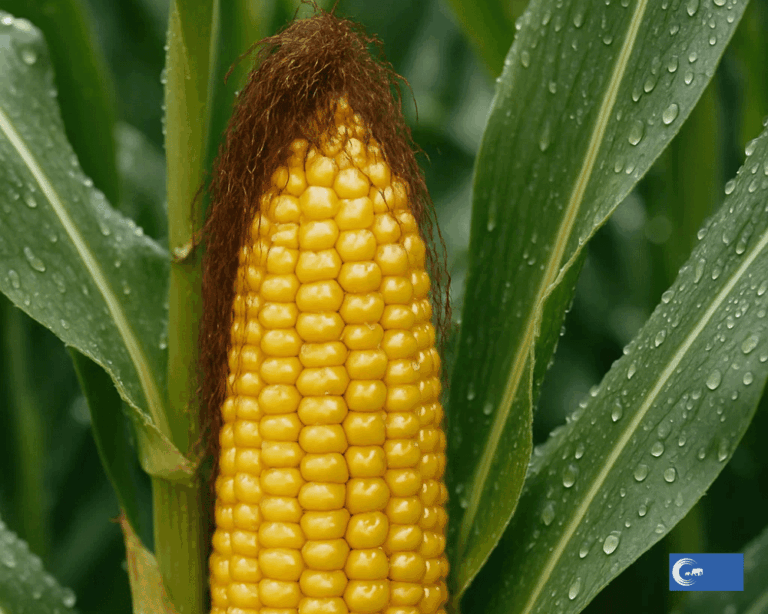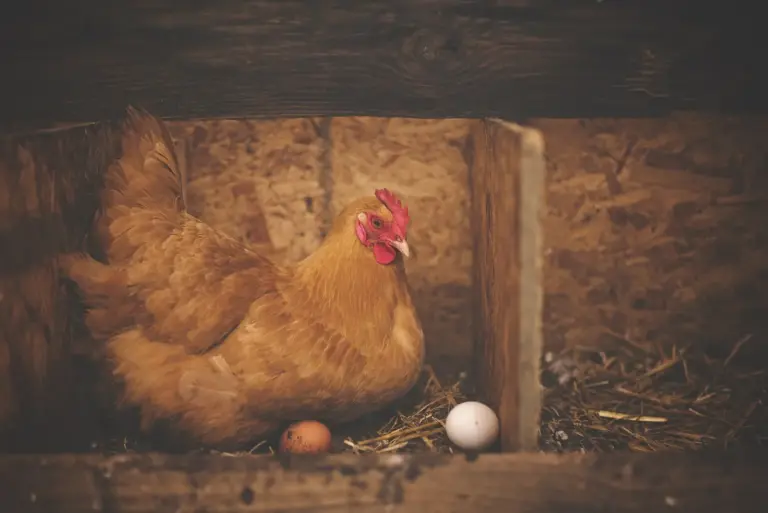You love nature; you love the countryside; you want to be more self-sufficient, and most of all, you want to be environmentally conscious and ensure the food you eat is produced sustainably for the environment.
Do you want to start a hobby farm but need to know where to start? You must consider many aspects, and you need clarification.
Use this guide to start your journey and create your small farm.
Main takeaways
- Hobby Farm Definition: A hobby farm is a small-scale, non-commercial farm operated for passion, rather than profit. It may involve animals, crops, or both.
- Start with Research: Understand the local laws, climate, land availability, and animal and crop requirements before beginning.
- Budget Wisely: Budget for land, animals, feed, shelter, tools, and veterinary care. Start small and expand gradually.
- Animal Care Basics:
- Chickens: Require a well-ventilated coop, proper feeding, and hygiene.
- Sheep: Need grazing land, shelter, and vet care, especially when breeding.
- Pigs: Need clean, spacious shelters and cooling options in hot weather.
- Other options Include Goats, ducks, turkeys, bees, or even cattle, if space allows.
- Crop Growing: Select crops based on your local climate and soil conditions. Start with low-maintenance vegetables; manage water, fertilizers, and pests wisely.
- Environmental Sustainability:
- Use crop rotation, rainwater harvesting, and organic methods.
- Reduce pesticide and energy use.
- Support biodiversity and consider renewable energy.
- Pros:
- Environmentally friendly and low-emission.
- Provides fresh food and psychological benefits.
- Cons:
- Labor-intensive and time-consuming.
- Requires constant care and commitment.
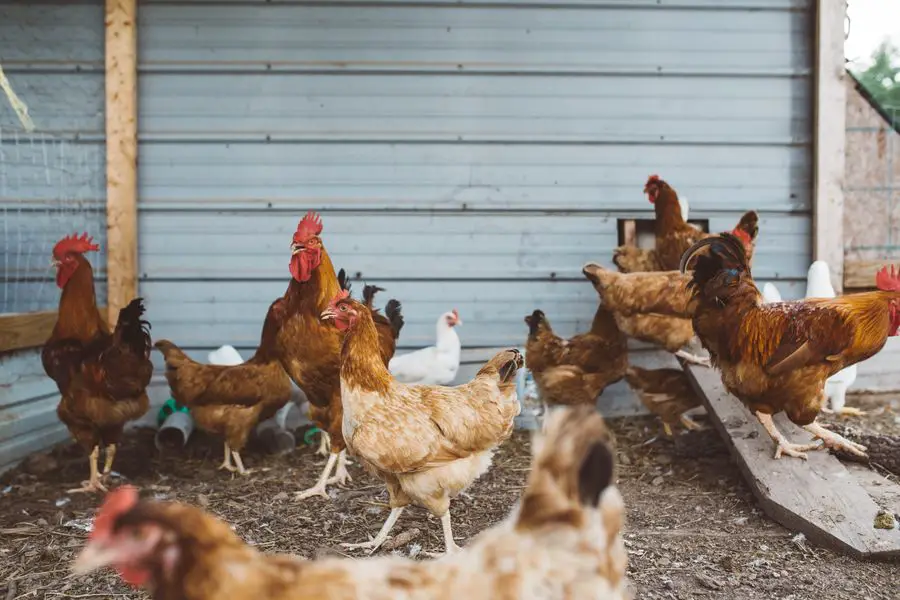
What is a Hobby Farm?
Anyone can be a hobby farmer, whether you want to raise animals like chickens, pigs, or other small animals, or look after your garden and produce your vegetables and fruits.
However, it is essential to understand that a small-scale hobby Farm is not for profit. Most of the already established hobby farms are run by people with a passion for nature, the countryside, and sustainability, but they are not seeking to make a profit from their hobby.
If you want to become a professional farmer, big or small, you will need a more in-depth knowledge of the farming industry in your area.

Creating a budgeting system for a hobby farm can help you manage your finances and ensure that you are making the most of your resources.
How do I Budget My Farm?
Budgeting is essential if you want to start a sustainable hobby Farm. However, budgeting is only straightforward if you understand what you need for rearing animals and growing your crops. The best thing you can do before starting your budget is to educate yourself. Read books, follow courses, talk to your neighbor, and ask for professional help.
What do I need to know before spending money to start my farm?
Do you already have a piece of land, a backyard, or a garden?
If the answer is no, you need to budget the rental cost of a piece of land or finance the purchase of a small farm. The cost of renting or buying a farm varies significantly depending on the location. Remember to check the local legislation for Hobby farming and to keep livestock. Legislation can be restrictive in some areas, and you don’t want to be caught in breach of the law.
The area’s weather and climate are other essential variables that will affect the type of animals you can rear and the crops or vegetables you can grow.
The first step in starting your hobby Farm is researching the different types of animals you can have, the management they require, their welfare needs, and any potential animal health implications.
Do you not want to rear animals but only grow vegetables or other crops? The research is precisely for that subject.
There are different ways to learn how to rear animals or grow vegetables.
Now, let’s dive more into detail about the animals and vegetables you can have on your farm. These guidelines have little ambition to be exhaustive, but they will provide you with a good idea of the animal needs and crop culture considerations you must consider.
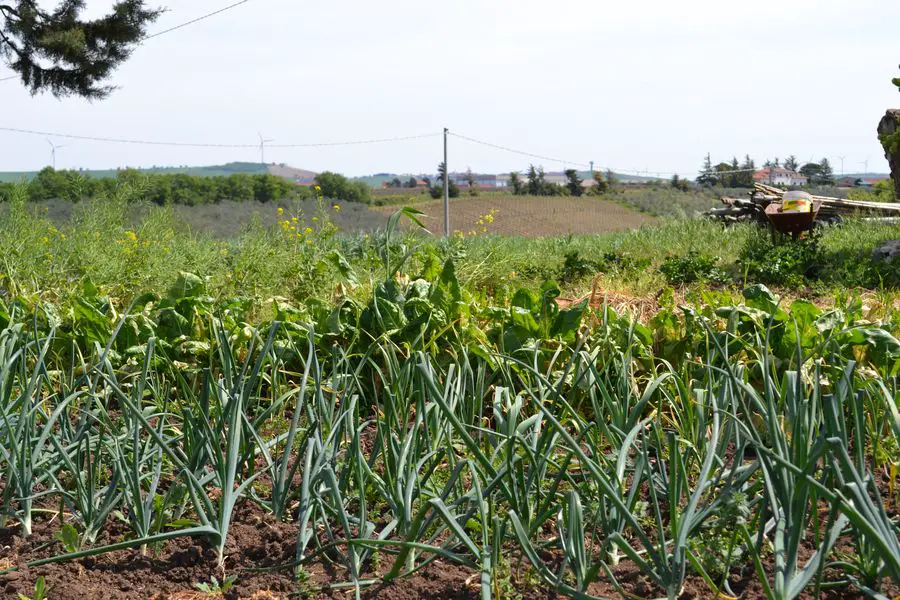
Best Animals to Keep on Your Hobby Farm
Chickens
The most common animals you can have on your farms are chickens. There are different breeds, and they are kept for various purposes. They can be kept for egg production or meat production.
The chicken coop is the first investment you will make when keeping chickens. Like every other farm animal, these animals have specific welfare and health requirements. They do not need a large outside area, but they enjoy wandering around and generally only travel a short distance from the shed. Chickens can exhibit aggressive behaviors if they don’t have sufficient space, especially when trying to lay eggs. Chicken coops, and typically any animal shelter for farm animals, must be very easy to clean. They can suffer from heat stress in hot weather, so their sheltered areas and sheds must be well-ventilated to prevent this. It is ideal to avoid building up humidity and ensure proper drainage.
Feeding space, food, and water troughs are also critical, and they will require careful consideration and probably some investment.
Chicken feeds can be expensive, but chickens can eat discarded vegetables and fruits, or you can start producing crops for feeding chickens on your land.
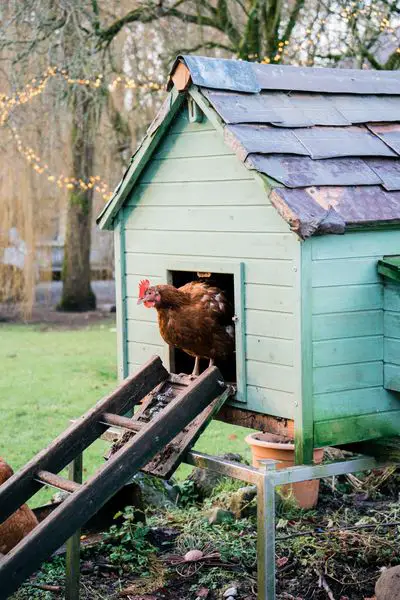
Raising your own chickens for eggs and meat can be a sustainable way to feed your family. You can also reduce your carbon footprint by producing your own food locally and reducing transportation costs.
Sheep
Another widespread farm animal in small farms is sheep. Sheep are kept for production purposes, like meat or milk, or they can be kept as pets. They also have specific requirements. They like to graze in hot weather, so you will need a more extensive farm with grazing pastures to keep sheep. In the winter, you must ensure a good shelter with plenty of space and, once again, look after feeding and water. If you decide to breed from your sheep, discussing the best health plan with your Veterinarian is essential. The diet requirements of pregnant sheep are different from those of non-pregnant sheep.
Once again, the shed for the sheep needs to be well-ventilated to facilitate easy cleaning, allow urine to drain, and prevent humidity from building up.
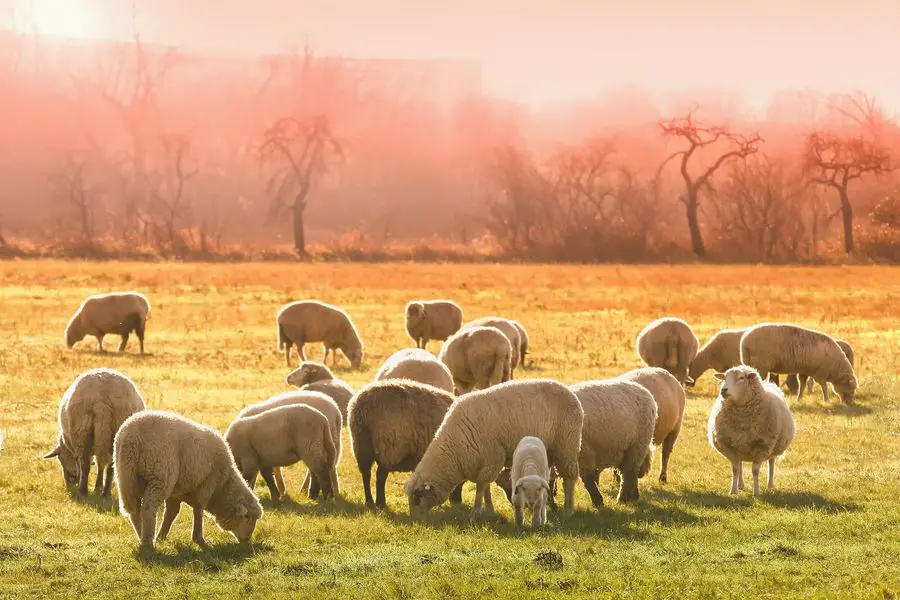
Sheep need more grazing space and different energy requirements if they are pregnant. – Photo by Analogicus
Pigs
If you decide to rear pigs, you will need to ensure that you provide sufficient space. In hot weather, pigs cannot cool down quickly, and they require a water bath to maintain a normal body temperature. Pigs are very clean animals, so you must provide clean straw for their shelter and ensure their accommodations are always clean and tidy. However, like chickens, they don’t need a lot of space. Remember, if you have more than one pig, they can exhibit aggressive behavior, especially under stress (such as hunger, hot weather, parasites, or other health issues).
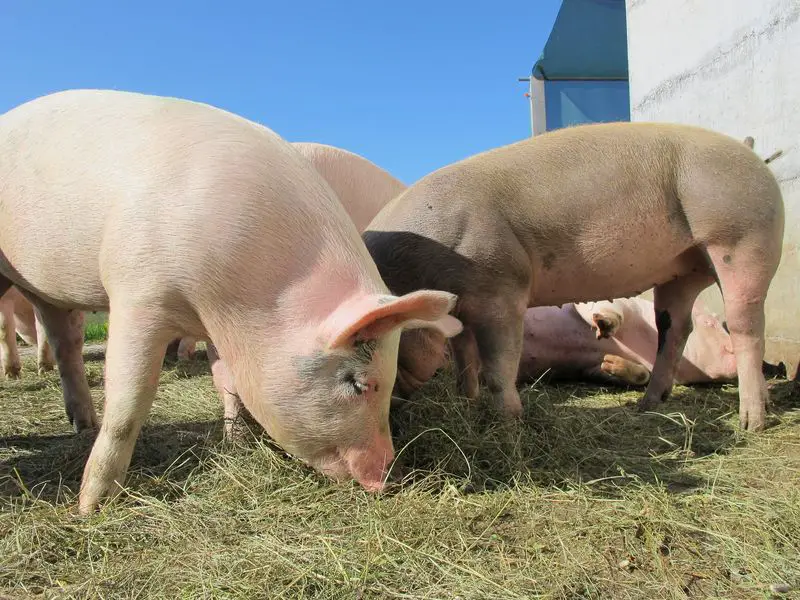
Pigs can be a great addition to a hobby farm, but it’s important to understand their care requirements and potential challenges. – Photo by Marion Streiff
Other Animals
You can keep these three animals on your farm, but you can also think about goats, ducks, or turkeys. If your farm is large enough, consider keeping cattle, although they are more expensive to maintain.
Remember to consider their welfare and health, shelter, feeding habits, requirements, water needs, and how the weather and temperature impact their well-being. Ensure you understand your management system and build your farm around it.
If you decide to rear animals, the best advice is to maintain a good relationship with your Veterinarian; they are the best person to advise on animal welfare and health.

Overall, beekeeping can be a rewarding hobby for a small farm or homestead, providing benefits such as pollination, honey production, and a connection to nature. However, it’s important to educate yourself and be prepared for the responsibilities of beekeeping before starting. – Photo by Bianca Ackermann
Bee-keeping
Bee-keeping can be another exciting hobby or farm activity. Keeping bees is highly technical and challenging, so you must study a lot, but it could be an excellent alternative to other conventional farm animals.
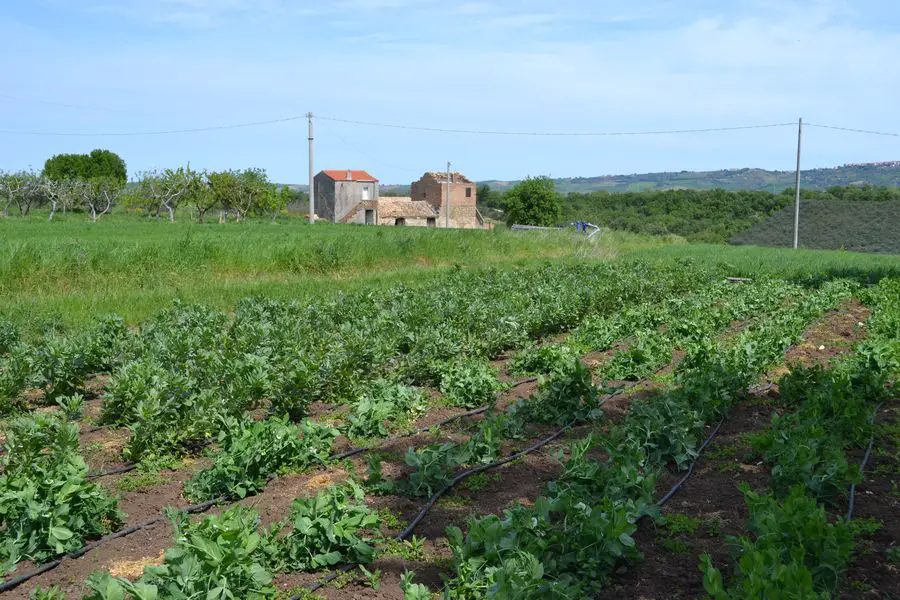
Research crop vegetables and fruits according to your area’s weather and temperatures.
What About Vegetables and Fruits?
Keeping a garden and growing your food or the food for your animals is one of the most satisfying hobbies in life.
The most important considerations to make if you decide to grow crops are the climate in your area, water availability, soil quality, and the types of pests present.
Some vegetables grow better in hot weather; others thrive in colder temperatures. You will need fertilizers, water, and tools for your land.
There are many crops you could grow on your small farm.
There are low-maintenance cultivations, such as garlic, onions, and potatoes, to more challenging ones, like carrots, zucchini, peas, legumes, and tomatoes.
You could think of growing crops like wheat, barley, corn, or sugarbeets for your animals.
In the winter, broccoli, cauliflower, and fennel are the best choices for vegetables.
Research crop vegetables and fruits according to the weather and temperatures in your area.
Summary of Your Main Expenses for Your Budget
Once you know the type of farm you want to start and your management system, you can better understand the budget you will need.
- Rent or buy
- Animals purchase
- Feeds – However, some of the food you need may be coming from your garden
- Sheds, pens, or any other accommodations
- Fencing
- Water and feed troughs
- Tools – These can vary according to your farm’s size, including tractors, tilling machinery, and other machines for applying pesticides or fertilizers.
- Seeds
- Fertilizers
- Bedding (straw or other alternatives)
- Veterinary advice and services
How Can You Be Environmentally Friendly?
In reality, hobby farmers are already environmentally conscious. Your food is zero-mile, which means that what you eat has not produced emissions from processing activities, packaging, or transportation.
Another essential consideration is that, as a small-scale farm, you will require less fertilizer, less tilling, and fewer pesticides, with minimal water usage.
But if you want to be even more environmentally sustainable, you can use techniques and implement systems to minimize the environmental impact of your small farm.
Environmental Sustainable farming can be achieved through the following:
- Minimize the usage of pesticides.
- Rotate your annual crops, for example, using two or three crops.
- Look after the biodiversity of your farm. Growing different crops and cultures allows other insects to populate your farm.
- Minimize energy usage. You could invest in renewable energy sources, such as small wind turbines or solar systems, on a small farm.
- Minimize water usage. Use rainwater, minimize water spillages, and use irrigation systems to optimize water usage.
- Produce your animal feeds and minimize the amount of feed you need to buy
- Manure management
Pros and cons of running a small farm
A small hobby farm is better for the environment. Allows for the consumption of fresher food and, if appropriately done, can also improve biodiversity.
It also has a significant psychological effect. Caring for a small farm can be a very rewarding, relaxing, and fulfilling experience.
However, it also requires a lot of work; it is very labor-intensive and does not guarantee consistent quality and high crop yields. You have consistently looked after your animals, and you need to ensure you have a plan in place for your holidays; your chickens will still require fresh food and water. Animals need to be looked after 24 hours a day, every day; they require regular feeding, as well as access to clean water and fresh bedding.
Conclusion
Starting a sustainable hobby farm can be a deeply rewarding way to connect with nature, produce your food, and live more self-sufficiently. While it requires time, effort, and thoughtful planning, the benefits—fresh, eco-friendly food, improved well-being, and a reduced environmental footprint—can far outweigh the challenges. Whether you raise a few chickens, grow vegetables, or explore beekeeping, taking small, informed steps will help you build a hobby farm that’s both fulfilling and sustainable.

